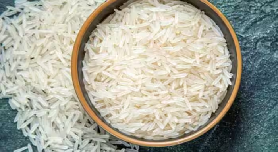India has permitted exports of 200,000 tonne of non-basmati white rice to Malaysia, an official notification said. India banned the export of rice in July 2023 to control inflation and secure food security.
The exports of rice to Malaysia are permitted through National Cooperative Exports Limited, the Directorate General of Foreign Trade (DGFT) said in its notification dated August 20, the day when the Prime Minister of Malaysia, Dato’ Seri Anwar bin Ibrahim was in New Delhi for a State Visit. In October 2023, India allowed 170,000 tonne of non-basmati white rice to Malaysia.
Earlier, India allowed the export of such a variety of rice to Nepal, Cameroon, Cote d’Ivoire, the Republic of Guinea, Philippines, Seychelles, UAE, Singapore, Comoros, Madagascar, Equatorial Guinea, Egypt, and Kenya, and Tanzania, though with varying quantities.
Some exports of non-basmati white rice, in limited quantities, were allowed later, subject to certain laid-out conditions. The export policy relating to non-basmati white rice (Semi-milled or wholly milled rice, whether or not polished or glazed: Other) was revised from “free” to “prohibited”.
While initially amending the rice export policy, DGFT maintained that the export would be allowed based on permission granted by the government to other countries to meet their food security needs and based on the request of their government.
In late August last year, India had also introduced additional safeguards by way of imposing a minimum floor price on exports of basmati rice (reportedly at USD 1,200 a tonne or more) so as to prevent exports of non-basmati white rice, which was already under the prohibited category since July.
West African country Benin is one of the major importers of non-basmati rice from India. Other destination countries are UAE, Nepal, Bangladesh, China, Cote D’ Ivoire, Togo, Senegal, Guinea, Vietnam, Djibouti, Madagascar, Cameroon Somalia, Malaysia, and Liberia.



